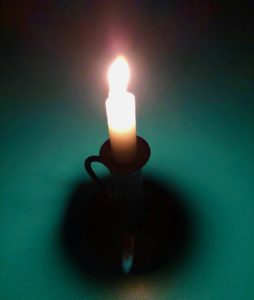
– Photo by Jan Ketchel
Worry issues from the mind, located in the astral body, in the form of a thought, wrapped in emotion, that is transmitted to the central nervous system of the physical body, which then activates a biological response for action. This often results in the sensorial experience of shallow breath and racing pulse, the very definition of anxiety.
The genesis of a thought that first attracts the attention of the mind, the mental component of the astral body, has multiple points of origin. Thoughts are independent energetic units that roam the universe in search of receptive minds willing to seed their potential. Human beings are natural storytellers, always in search of a fertile thought.
Thoughts can also be self generated by the mind itself, particularly in individuals who live mostly in their minds, largely dissociated from their physical bodies as they navigate life in abstract thought.
Thoughts can also issue from the largely subconscious section of the mind in the regions beneath consciousness. These include the rejected parts of self, what Jung called the shadow, as well as the preprogrammed archetypes that run the programs of the physical body.
The subconscious also houses the history of all human experience, what is esoterically called the Akashic library, what Jung called the shared collective unconscious of humankind. Psychics, like Edgar Cayce, tap this source of knowledge in trance in search of healing prescriptions for the afflicted.
At the superconscious level, thoughts issue from the transcendental realm of the high SOUL, wisdom and guidance offered, generated through the solicitation of consciousness seeking truth.
When a thought is presented to, or generated by, the mind, a decision is made whether to focus continued attention upon the thought or to dismiss it from further consideration. Generally, the thought arrives with enough of an energetic charge to attract attention. That charge is a feeling; the thought might be pleasing or potentially frightening.
If consciousness chooses to attach its continued concentration upon the thought, it gains in emotional momentum, as a potential drama begins to formulate in the mind. This abstract astral body play attracts a physical audience, as emotions activate chemical processes in the body that take on physical form. These can include tightening of muscles, racing heartbeat, shortness of breath, headache, etc.
Subjectively, these sensations are experienced as a myriad of feelings and emotions that gain in intensity as the mind continues to allow the drama to deepen its plot. The worry of many a sleepless night is a function of this runaway train of thought and emotion, as it writes its story on the astral plane and engages the body as its captive audience.
The crux of worry is attachment. The core goal of all meditation is non-attachment to thought, a formidable goal given the attractive power of thoughts, incessantly seeking a home through grabbing the mind’s attention.
The time we live in is rampant with thoughts of all persuasions, crudely pressing to infiltrate our minds. How challenging to avoid these thoughts that so quickly activate intense emotions. Emotions are the energizers of action. Calls to action abound, constantly bombarding the mind’s autonomy.
The most rudimentary action one can take to free oneself from such influence is to limit exposure to the marketplace of thoughts that seek every avenue to attach to one’s mind. For instance, limiting one’s exposure to news and social media.
Of course, to be oblivious to the events of the world is not recommended, however, regulating exposure time can stop the development of unnecessary pictures that merely drain vital energy. Furthermore, through saving one’s attentive energy from outer influence, one is available to guidance that is always synchronistically available but rarely received, as all energy is monopolized by abstract possibilities.
Synchronicity is guidance from the superconscious, the fourth dimension of the high SOUL. Reading this energy from infinity, in all of nature, often presents a perspective of such depth that the mind and emotion of the astral body sends deeply calming impulses to the physical body. The nightmare of thought is branded illusion, as one is enveloped by love and awe.
Trust deepens in the guidance of the light of the high SOUL, as synchronicity is recognized as the true harbinger of the truth. Even without any knowledge of outside events, synchronicity will safely and appropriately guide action.
If thoughts, like weeds, manage to find their way into the mind’s garden, weeding involves refusal to nourish the unwanted intruder. This calls upon the discipline of shifting one’s attention away from the developing plot. Thoughts require the active participation of the mind’s attention to continue to write their lines. Unattended thoughts either wither and die or leave, seeking new takers to feed their hunger for life.
One shift could be to focus one’s astral attention on the physical body, with the intent of deep relaxation and calming suggestions. The body is largely governed by its astral body partner’s suggestions. Positive affirmations result in physical calm.
Another practical shift is to walk in a different direction, literally changing one’s physical posture and direction. The mental focus accompanying the shift is the repeated mantra, NO WORRY.
Take command of the mind’s capacity for attention. Consider orienting that attention to the communications of the high SOUL, passing on its directives to the physical body. And, if you happen to get caught in a worry, no worry. Shift, find the light, and follow it.
No worry,
Chuck


